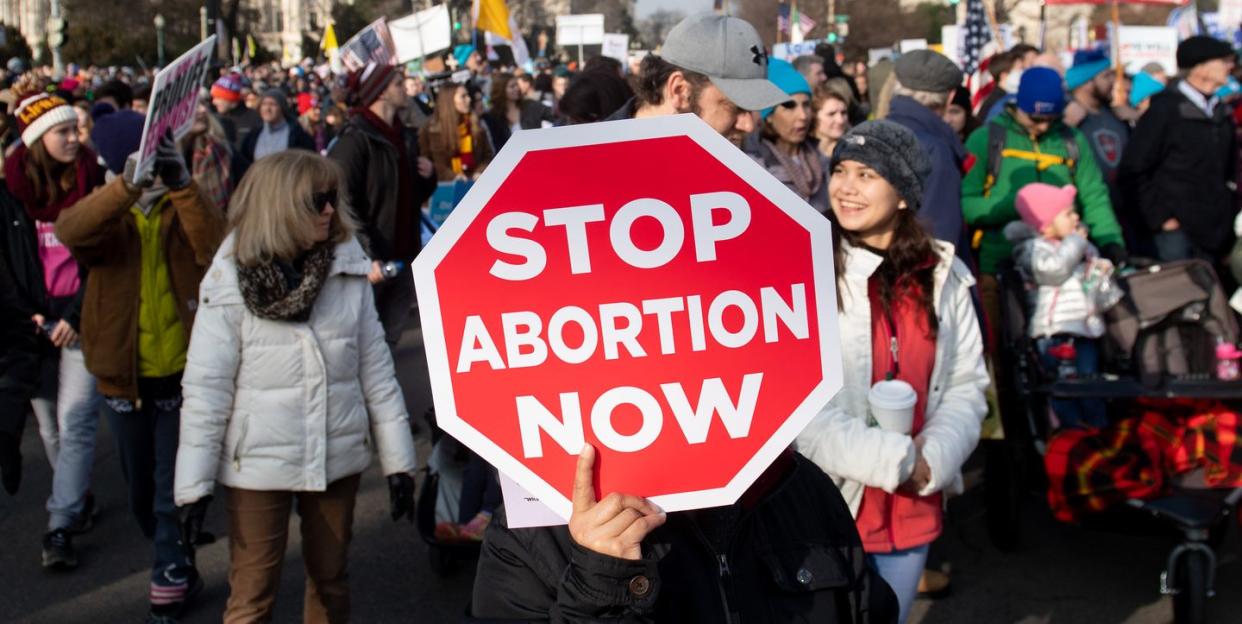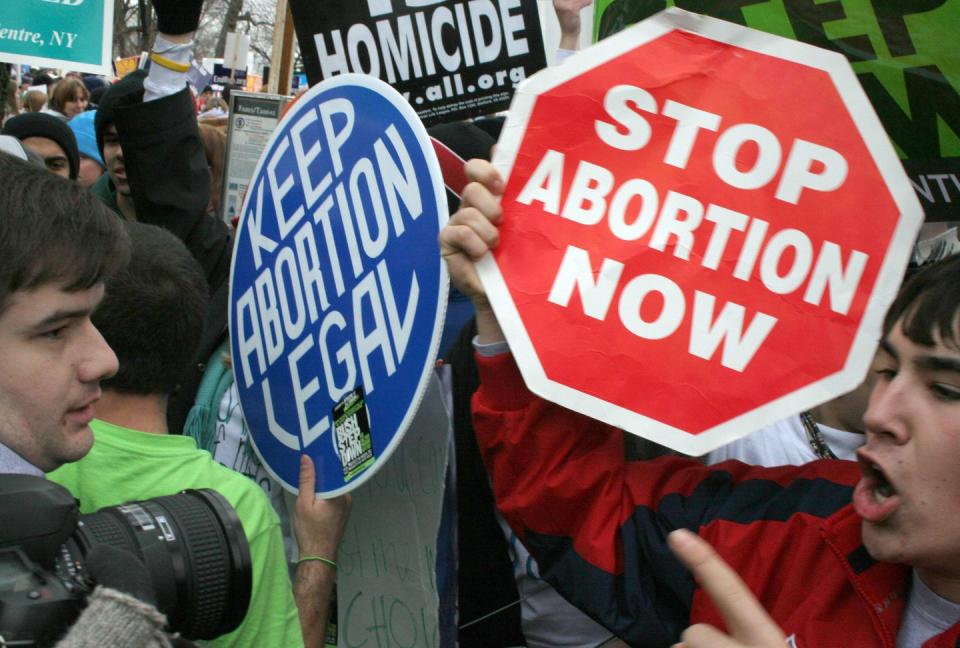Judges Have Already Called This Abortion Law Unconstitutional. So Why Are States Trying to Pass It?

Across the country, restrictive abortion bills continue to be introduced at the state level, all while President Trump is spouting anti-abortion rhetoric and nominating conservative, anti-choice judges. One type of bill in particular, the "fetal heartbeat" bill, comes back in the news time and again as various legislatures try their hand at passing the law. But what exactly does this type of bill entail? Below, ELLE.com breaks it down.
What is a "fetal heartbeat" bill?
"Fetal heartbeat" bills are legislation that would make abortion illegal as soon as a fetus' heartbeat can be detected. This can happen as early as six weeks, though it depends on many variables, including the technology used. But the timing is extremely important because many people don't know they're pregnant at six weeks, essentially banning abortion for these women.
Which states have introduced these bills?
A lot. Over the years, a number of states have introduced and voted on these bills (Ohio was the first state to do so in 2011, according to Refinery29), but a heartbeat bill has never officially gone into effect. If it ever did, it would be among the strictest abortion laws in the country.
In 2018, Iowa succeeded in signing a heartbeat bill into law, but it was ultimately blocked by the courts before going into effect and later declared unconstitutional.
So, which states should I be paying attention to now?
First up is Georgia. The state legislators passed its current heartbeat bill in late March, and the state's governor Brian Kemp officially signed it into law in early May. According to CBS, Kemp said at the signing, "Georgia is a state that values life. We protect the innocent, we champion the vulnerable, we stand up and speak for those that are unable to speak for themselves." CBS reports that the American Civil Liberties Union and the Center for Reproductive Rights have already said they would challenge the legislation before it goes into effect.
Ohio's own bill became law in early April after being signed by governor Mike DeWine, and the ACLU of Ohio already announced it will sue to stop the law from going into effect. (In the past, DeWine said he would sign the heartbeat bill if it were to come across his desk.) The bill does not make exceptions for rape or incest, only for a woman who's at risk of dying or who could suffer "irreversible impairment of a major bodily function," according to The Hill. Ohio lawmakers actually passed a heartbeat bill back in 2018, but it was ultimately vetoed by then-governor John Kasich, though he signed another restrictive abortion law at the same time.
Tennessee's state House and Senate also recently passed a heartbeat bill and similar bills are being considered in a number of other states, including Florida and South Carolina.
What's the controversy surrounding these bills?
Besides the fact that some pro-choice advocates consider these bills to be essentially abortion bans, many also consider them to be unconstitutional. Elizabeth Nash, senior state issues manager at the Guttmacher Institute, told CNN that the U.S. Supreme Court "essentially has held that a state cannot ban abortion before viability." She explained, "Viability is determined individually but on average is between 24 and 28 weeks of pregnancy."
In March, a federal judge temporarily blocked a heartbeat bill in Kentucky, which had been signed into law by the state's governor Matt Bevin, according to the New York Times. The judge ruled it was "potentially unconstitutional" and stopped enforcement until there could be a hearing. And as mentioned above, in January, a state judge in Iowa also struck down the state's heartbeat bill, saying it was unconstitutional.

What about at the federal level?
While these bills seem to be aimed at stopping people from getting abortions in specific states-and they are-the intent is also that one of these bills might result in a court case that could come before the Supreme Court. Then, with help from the anti-choice judges President Trump has appointed (hello, Brett Kavanaugh), there could be a vote to weaken or overturn Roe v. Wade.
And people are open about it. In May 2018, when Iowa signed its heartbeat bill into law, it was reported that state Sen. Rick Bertrand said this during a floor debate for the bill: "Today we will begin this journey as Iowa becomes ground zero nationally for the life movement and the starting line back to the Supreme Court. I believe this bill will be the vehicle that will ultimately provide change and provide the opportunity to overturn Roe v. Wade."
In 2013, a heartbeat bill out of North Dakota was even appealed all the way to the Supreme Court, according to CNN, though they chose not to take the case. This happened again in 2013 with a similar bill coming out of Arkansas.
This post will continue to be updated.
('You Might Also Like',)

